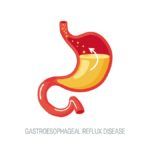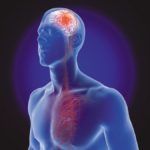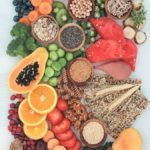Home Search
Cancer - search results
If you're not happy with the results, please do another search
Q. I have read reports that coffee is good for health. I cannot consume...
Q. I have read reports that coffee is good for health. I cannot consume caffeine. Does decaf coffee have any health benefits?
Health Benefits of Whole Grains
The 2015 Dietary Guidelines for Americans recommend replacing refined grains with whole grains so that at least half of all grains consumed are whole grains. This recommendation is echoed in other guidelines and is backed up by many observational studies in which diets high in whole grains are associated with an array of health benefits compared to diets high in refined grains.
Q. Is there anything I can do to address my frequent heartburn besides medications?
Q. Is there anything I can do to address my frequent heartburn besides medications?
Demystifying Type 2 Diabetes
The prevalence of diabetes is rapidly rising in every country around the world. According to the American Diabetes Association (ADA), nearly 10 percent of the U.S. population-more than 30 million Americans-has diabetes. Another 84 million adults have prediabetes. And, at least a quarter of people with diabetes and the vast majority with prediabetes dont even know they have it. If things dont change, about two in five Americans will develop diabetes in their lifetime.
Homocysteine: The Facts
Doctors routinely measure blood levels of cholesterol, triglycerides, and blood sugar, because high levels are strongly associated with higher risk of cardiovascular disease, and bringing these levels down through diet, exercise, and appropriate medication may lower risk. Some researchers suggest that another measure, homocysteine (ho-mo-SIS-teen) levels, should be added to that list. Multiple studies have found an association between high blood levels of homocysteine and higher cardiovascular disease risk (especially heart attack) as well as higher risk of certain causes of cognitive decline, says Irwin H. Rosenberg, MD, a professor at Tufts Friedman School of Nutrition Science and Policy and senior scientist at the Neuroscience and Aging Laboratory.
Any Physical Activity Better Than None for Survival in Cancer Patients
A recent study published in Cancer Causes & Control found an association between the occurrence of low-to-moderate frequency recreational physical activity and lower mortality in individuals diagnosed with various types of cancer.
Fiber and Whole Grains for Better Health
The journal The Lancet recently published a report that collected and pooled data from 185 prospective observational studies and 58 clinical trials on dietary fiber intake and human health.
What’s So Special About Cruciferous Vegetables?
You may be surprised to learn that kale and broccoli are cousins. They are part of the Brassica family, also known as cruciferous vegetables because their flower petals form the shape of a cross (cruciferae is Latin for cross-bearing).
Plant-Based and Unhealthy?
Experts agree plants should make up a large part of a healthy dietary pattern. Humans eat plant roots (carrots and radishes), stems (asparagus and celery), leaves (leafy greens), seeds (including whole grains), flowers (broccoli, cauliflower, artichoke), and the seed-bearing fruits of plants (including fruits, vegetables, beans, and nuts).
Personalized Nutrition
There is evidence that people respond differently to foods or nutrients depending on genetics and other factors, such as the make-up of their gut microbiome. While dietary guidance, such as the Dietary Guidelines for Americans, is designed as a public health tool to impact the health of the population as a whole, the frontier of nutrition science brings us the concept that dietary advice can be adjusted to take individual biological differences into account.






























